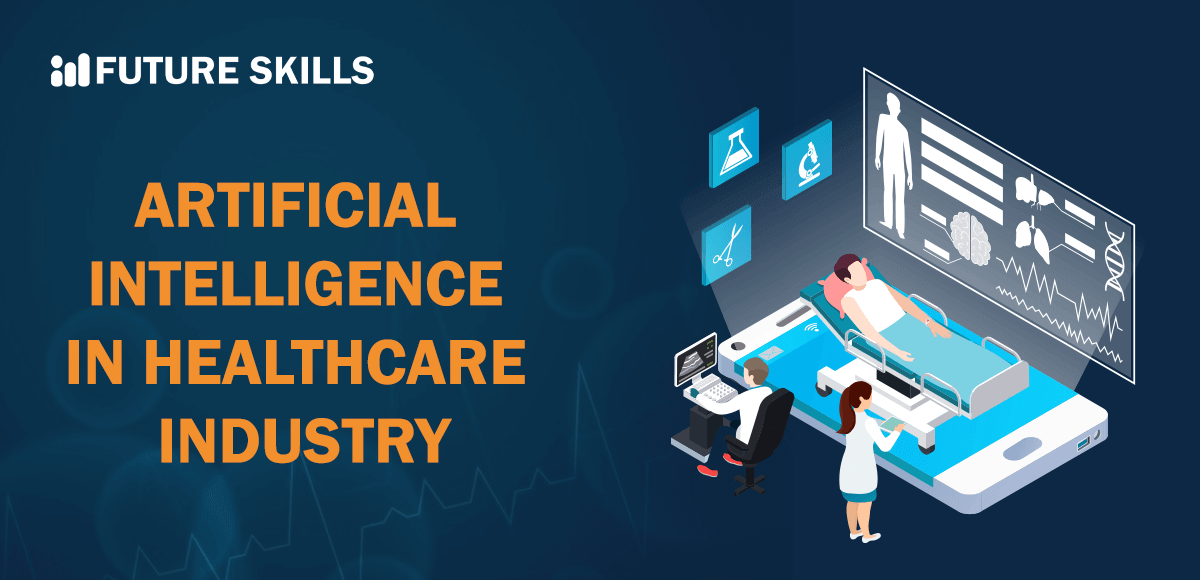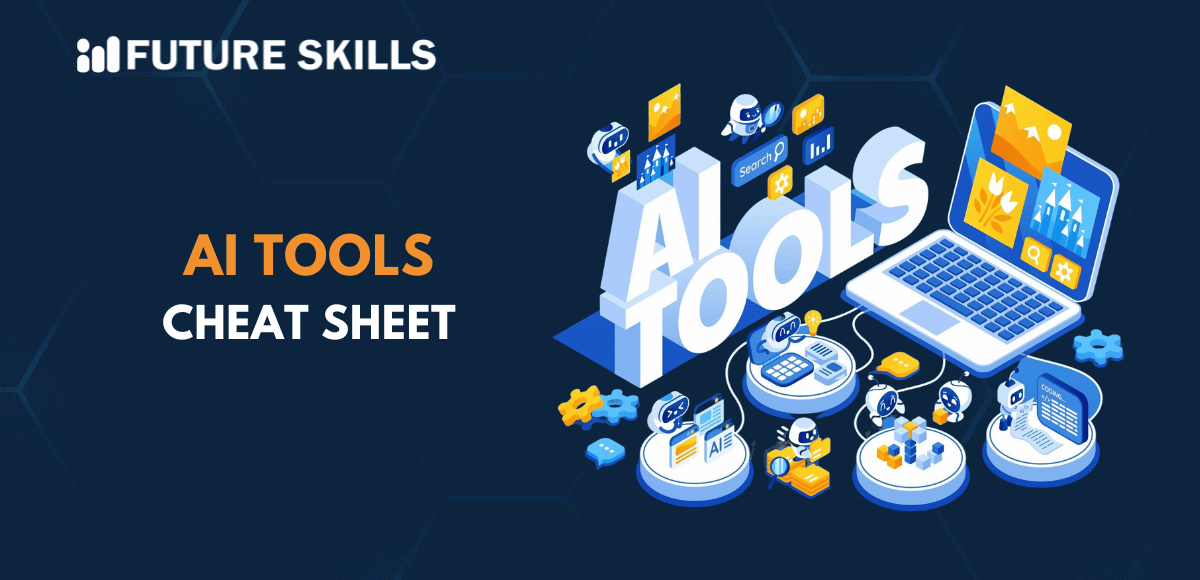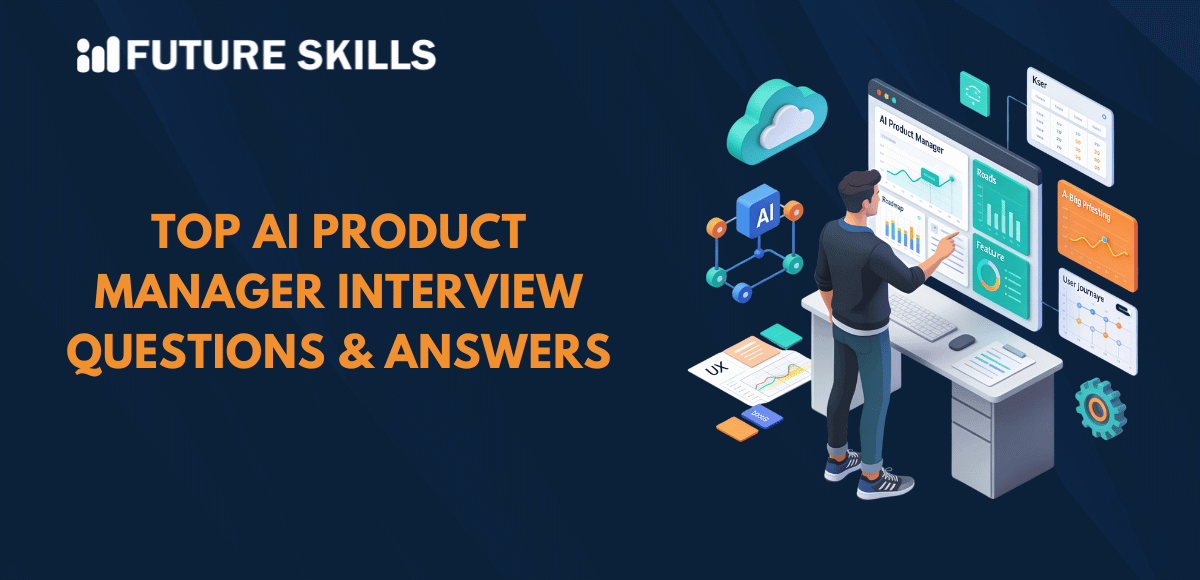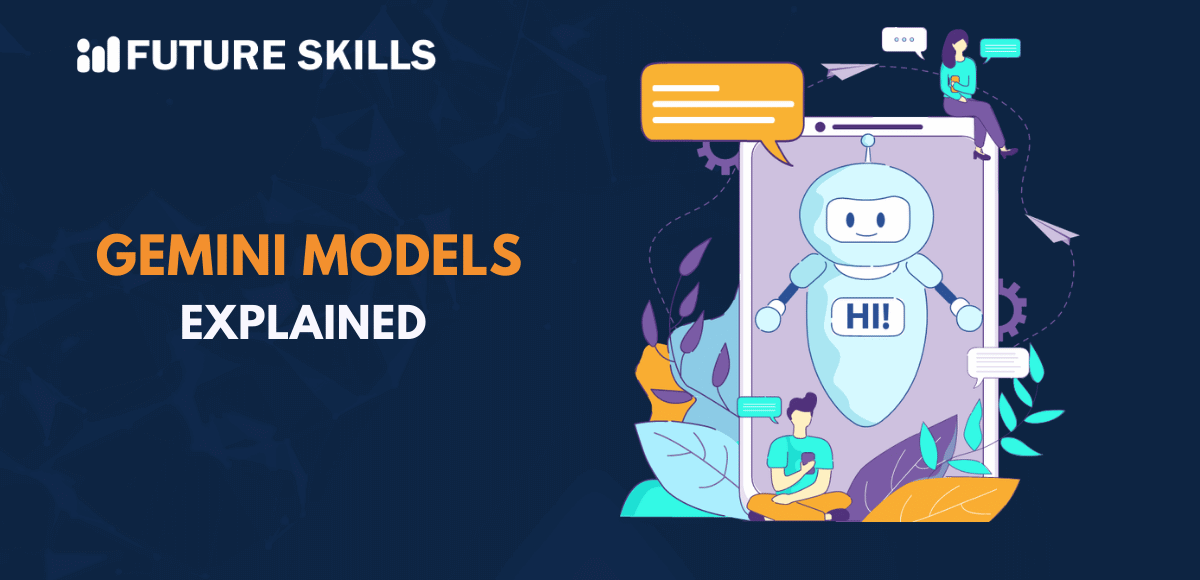Artificial intelligence has transformed into a massive force of change within the span of last few years. Some people believe that AI is a recent technological advancement. However, the origins of AI go back to 1956, when it was officially recognized as a discipline of study. Researchers have explained the benefits of artificial intelligence in healthcare with new use cases for addressing the setbacks in existing systems.
Artificial intelligence has gained traction as a vital tool for resolving complex issues in society and business. It has also become an important tool for changing the traditional perspectives on healthcare delivery. At the same time, you need to understand how artificial intelligence could transform healthcare with the help of practical examples. The following post helps you learn about the importance of artificial intelligence in the domain of healthcare.
Advance your career with the Certified AI Security Expert (CAISE)™ certification—master LLM security, adversarial machine learning, and advanced AI defense mechanisms to combat real-world AI risks with confidence.
How Do AI and Healthcare Fit Together?
The transformative impact of artificial intelligence on different industries has been becoming more prominent. Healthcare is a massive industry, and the continuous expansion of AI technology use cases demands the use of AI for healthcare. The application of AI in healthcare can provide efficient solutions for patient data management. On top of it, artificial intelligence could facilitate seamless automation of administrative activities in healthcare. Healthcare providers can also utilize AI for powerful applications with different strategies personalized to their needs.
Experts believe that the advantages of artificial intelligence in healthcare would revolve around capabilities of AI to think like humans. Artificial intelligence can help in reducing costs and improving the quality of healthcare, along with the assurance of safeguarding patient privacy. Therefore, experts have been seeking faster developments in the field of AI to transform healthcare applications.
Level up your ChatGPT skills and kickstart your journey towards superhuman capabilities with Free ChatGPT and AI Fundamental Course.
Which Challenges Can AI Solve in Healthcare and Wellness?
Artificial intelligence has emerged as a promising choice for transformation of healthcare. On the other hand, it is important to understand that the development and implementation of AI solutions must follow responsible and ethical standards.
At the same time, artificial intelligence implementation must pay attention to issues such as algorithm bias, data privacy, and the ability to influence patients and healthcare professionals. The answers to “What is artificial intelligence in healthcare?” would focus on how AI should include the human element in healthcare services. Artificial intelligence and healthcare professionals should work in collaboration with each other to deliver higher-quality healthcare. Here are the noticeable problems of the healthcare sector you can address with artificial intelligence.
-
Accessibility of Healthcare
The common entry among examples of AI applications in healthcare points to ensuring accessibility of healthcare services. The best example of artificial intelligence in healthcare directly refers to chatbots, which can reform accessibility of healthcare. Chatbots with the functionalities of AI could help people in rural and underdeveloped regions where healthcare professionals could not reach.
In addition, areas with a shortage of healthcare facilities can use AI-based chatbots for receiving medical consultations. Chatbots could help in remote monitoring of chronic conditions and access to mental health services. You can think of such applications as the foundations of new models of healthcare where you don’t need physical healthcare facilities.
-
Preventive Healthcare
The review of the use cases of artificial intelligence in healthcare also draws attention to preventive healthcare. AI-based systems could play a crucial role in predicting and preventing health problems before they inflict any damage. The benefits of artificial intelligence in healthcare would ensure that patients could find out the risks of diseases based on their lifestyle data, medical history, and other aspects. As a result, healthcare professionals could ensure early intervention for patients, thereby reducing healthcare costs alongside ensuring favorable patient outcomes.
-
Faster Diagnosis and Treatment
Artificial intelligence has the capability to improve speed and accuracy of the diagnosis of patients through analysis of patient data. AI-based systems could evaluate medical reports, imaging scans, and test results to improve accuracy of diagnosis and speed. Healthcare professionals could recognize the healthcare conditions which might have been ignored or misdiagnosed, thereby helping with timely and effective treatment.
Artificial intelligence can also play a vital role in helping patients with a selection of ideal treatment approaches. The applications of AI can support comprehensive evaluation of multiple factors, such as progression of disease, comorbidities, and genetic makeup.
-
Medical Research
The next example of artificial intelligence in healthcare points towards the use of AI for medical research. Artificial intelligence could help in faster medical research through analysis of large datasets within a limited period of time. The insights by artificial intelligence can help in uncovering new inferences which might be invisible to human researchers.
As a result, medical researchers can use AI to develop a better understanding of disease mechanisms and develop new treatments. Thus, artificial intelligence could not only improve healthcare but also establish the future direction for healthcare innovation.
-
Lack of Workforce
The healthcare industry has been struggling with the lack of trained professionals to address the emerging needs of healthcare. You can rely on advantages of artificial intelligence in healthcare for reducing workforce shortage through automation of routine tasks, like appointment scheduling.
AI could help in addressing the requirements of patient triaging and medical record processing tasks. Therefore, AI ensures that healthcare professionals can invest their time in more complex tasks, such as treatment and diagnosis. Artificial intelligence could also serve a crucial role in reducing the burden of administrative tasks by a huge margin.
-
Patient Engagement
Another critical issue in healthcare industry points to patient engagement. AI-based applications and devices could help patients in monitoring their health alongside adherence to recommended medication. Such types of applications of AI in healthcare focus on painting patients as a major players in the healthcare sector.
Artificial intelligence can enable patients to understand the treatment process and their health conditions. Subsequently, healthcare professionals can collaborate seamlessly with patients for better monitoring and management of patients’ health conditions.
-
Management of Chronic Diseases
Artificial intelligence could support effective management of chronic diseases by enabling real-time monitoring. The consistent monitoring of patient data such as heart rate, blood pressure, and blood glucose levels can help in identifying discrepancies in the patient’s condition.
As a result, healthcare providers can deliver personalized interventions and treatment plans, such as lifestyle changes and adjustments in medications. The timely recommendations of AI-based health monitoring systems can help patients with a better understanding of their health conditions.
Level up your AI skills and embark on a journey to build a successful career in AI with our Certified AI Professional (CAIP)™ program.
Value of Artificial Intelligence in Healthcare
According to a report by IBM, expenses on applications of artificial intelligence for the healthcare industry would grow at a rate of 48% from 2017 to 2023. The most common references to ‘what is artificial intelligence in healthcare’ revolve around applications for searching massive data sets to identify important patient information.
Most of the intelligent systems in healthcare utilize artificial neural networks as computers can learn the skills for processing raw data. Among the many applications of AI in healthcare, the implementation of AI in solving problems with medical imaging can showcase multiple value pointers. Here are the noticeable ways in which artificial intelligence resolves the challenges for medical imaging.
-
AI Utilizes the Massive Volumes of Data
Healthcare providers have to experience massive setbacks in utilizing available data to its full potential. Most of the time, healthcare providers have to go through various documents to seek important patient information. For example, imaging scans could only produce a few images in the past. On the other hand, advanced technologies can create almost thousands of images for one patient.
Therefore, human researchers and healthcare professionals are likely to feel the burden of processing such massive volumes of data. However, deep learning systems need massive collections of data to improve their functionalities. AI systems have the capability to track large amounts of health data alongside faster accessibility for comprehensive patient records.
-
AI Can Identify Tiniest Details
The benefits of artificial intelligence in healthcare are clearly visible in the opportunity to witness important details. You must have noticed how AI helps in medical research by identifying patterns that are not visible to human researchers. Artificial intelligence systems do not have any predefined notions regarding the expected results. The ability of artificial intelligence to identify conditions, symptoms, and discrepancies which a human practitioner would have missed is definitely a valuable addition to healthcare.
-
Seamless Integration with Existing Systems
Another crucial pointer for explaining the value of artificial intelligence in healthcare points to facility of seamless integration in existing systems. Artificial intelligence does not deliver any useful results when they create complications in the workflow. The advantages of artificial intelligence in healthcare focus on how AI solutions could support existing systems and workflows.
As a result, healthcare providers can avoid the need for additional resources or unwanted disruption. Therefore, the applications of AI for healthcare could help organizations in efficient utilization of existing systems. For example, IBM Watson Imaging Patient Synopsis tool can work seamlessly with the existing Electronic Health Record or EHR system.
Become a certified ChatGPT expert and learn how to utilize the potential of ChatGPT that will open new career paths for you. Enroll in Certified ChatGPT Professional (CCGP)™ Certification.
Use Cases of Artificial Intelligence in Healthcare
The relevance between artificial intelligence and healthcare provides many reasons to adopt AI in the domain of healthcare. Here are some of the prominent AI use cases in the domain of healthcare which prove the significance of AI.
-
Accuracy in Cancer Diagnosis
The most crucial highlight for identifying the value of AI for healthcare depends on the accuracy of a cancer diagnosis. PathAI is an example of artificial intelligence in healthcare, which helps pathologists in making accurate diagnoses. It helps in reducing errors during the diagnosis of cancer and offers multiple new techniques for individual treatment. The improved accuracy in cancer diagnosis can help in ensuring proactive treatment without leading to fatal stages.
-
Virtual Health Assistants
The new wave of technological transformation in healthcare with AI would also introduce virtual health assistants. You can explore multiple functionalities with virtual health assistants, such as scheduling appointments and responding to patient queries. In addition, virtual health assistants would serve more functionalities than a regular AI chatbot.
For example, virtual health assistants could also manage the medical information of patients alongside safeguarding sensitive data. Virtual health assistants can also send reminders or follow-ups to patients and doctors about their upcoming appointments.
-
Participation in Clinical Trials
The value of AI for automation also provides a reason to use artificial intelligence in healthcare. You can find answers to “What is artificial intelligence in healthcare?” by identifying how AI can encourage clinical trial participation. The onboarding process for clinical trials is lengthy, complicated, and confusing for volunteers.
AI could help researchers identify the ideal target audience for specific clinical trials. On the other hand, artificial intelligence can help simplify the onboarding process for volunteers by providing answers to the requested information.
Excited to understand the crucial requirements for developing responsible AI and the implications of privacy and security in AI, Enroll now in the Ethics of Artificial Intelligence (AI) Course
What are the Challenges of Using AI in Healthcare?
The review of every example of artificial intelligence in healthcare will focus on the advantages of AI. However, it is also important to look at the challenges in adoption of artificial intelligence for healthcare sector. The notable challenges for adoption of AI in healthcare revolve around changes in regulations for AI applications in healthcare.
In addition, it is also important to note how the lack of AI talent could affect the adoption of AI in healthcare. Furthermore, healthcare providers must also prepare patients for accessing healthcare services through the new methods featuring artificial intelligence.
Conclusion
The value of artificial intelligence for healthcare is clearly visible in the multiple AI use cases for fintech. On the other hand, it is also important to understand how artificial intelligence can provide the opportunity for comprehensive medical research. Therefore, the benefits of artificial intelligence in healthcare would also shape the future of healthcare services. For example, AI can ensure seamless delivery of healthcare consultation services to remote areas without any medical infrastructure.
Artificial intelligence can also serve a crucial role in ensuring the development of new forms of treatment and faster diagnosis of critical health conditions. On the other hand, adoption of AI in healthcare would also come across some prominent challenges like regulatory uncertainty. However, awareness regarding artificial intelligence and its working could help in removing the initial barriers to adoption of AI for healthcare.





